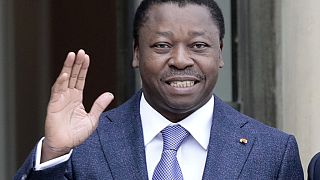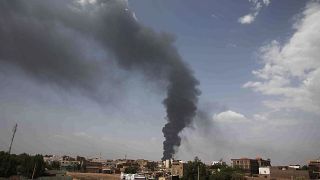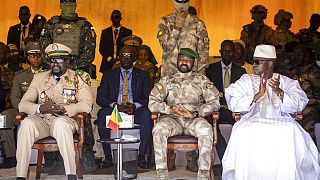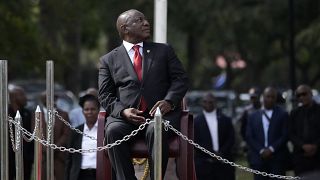Mali
Mali's ruling junta declared the "immediate termination" of the crucial 2015 Algiers Accord with northern independentist groups on Thursday, January 25. The accord, considered vital for stabilizing the country, has been a point of contention in recent years.
The junta cited the "change in posture of some signatory groups" and "acts of hostility and instrumentalization of the accord by Algerian authorities" as reasons for the abrupt termination. The announcement was made in a televised statement by Colonel Abdoulaye Maïga, the government spokesperson appointed by the military.
The Algiers Accord, already considered weakened, faced further challenges in 2023 as hostilities resumed between independentist groups, mainly Tuaregs in the North, and the Malian army following the withdrawal of the United Nations Multidimensional Integrated Stabilization Mission in Mali (MINUSMA) orchestrated by the junta.
In early 2023, Colonel Assimi Goïta, the junta's leader, declared the establishment of a "direct inter-Malian dialogue" to prioritize national ownership of the peace process.
In Thursday's statement, the government officially declared the "absolute inapplicability" of the Accord for Peace and Reconciliation in Mali, and consequently, its immediate termination. Mohamed Elmaouloud Ramadane, spokesperson for the Permanent Strategic Framework, an alliance of armed groups that signed the 2015 accord but resumed hostilities last year, stated, "All negotiation channels are now closed. We have no choice but to fight this war imposed on us by this illegitimate junta with whom dialogue is impossible."
The termination of the Algiers Accord aligns with a series of ruptures initiated by the military, which seized power in 2020. The junta severed longstanding ties with France and its European partners, turning towards Russia, and forced the departure of MINUSMA.
The termination also comes amid strained relations between Mali and its significant neighbor Algeria, with which Mali shares hundreds of kilometers of border. In a strongly-worded statement, Colonel Maïga accused Algeria of multiple acts of unfriendly behavior, hostility, and interference in Mali's internal affairs. The government denounced Algeria's "erroneous perception" of Mali, considering it as their backyard or a doormat, reflecting disdain and condescension.
Among various grievances, the junta accused Algeria of hosting offices of some signatory groups of the 2015 accord that have turned into "terrorist actors." The Malian regime "demands that Algerian authorities immediately cease their hostility."
Mali has been in turmoil since insurrections, including independentist and Salafist movements, erupted in the North in 2012. The Tuareg-dominated groups took up arms for independence or autonomy, leading to a jihadist insurgency linked to Al-Qaeda. The violence prompted a French military intervention and plunged the Sahel into conflict.
After a ceasefire in 2014, Tuareg-dominated armed groups and loyalist factions signed the "Algiers" peace accord in 2015, envisioning more local autonomy and the integration of fighters into a "reconstituted" army under state authority.
Jihadists, however, continued to fight against the state under the banners of Al-Qaeda or the Islamic State. The conflict, resulting in thousands of deaths and displacing millions, spread to central Mali and neighboring Burkina Faso and Niger, both witnessing military coups in 2022 and 2023.
The termination of the Algiers Accord further complicates the already challenging peace and stability prospects in Mali, raising concerns about heightened conflict and strained regional relations.













01:01
Nine African migrants buried in secular ceremony in Brazil
01:05
Niger signs deal to supply Mali with cheaper diesel
00:48
Corpses found adrift in boat off Brazil likely migrants from Mauritania, Mali - Police
00:51
Mali bans political party activities as calls for elections grow
00:58
Algeria: Rebbach dreams of playing for national team
01:54
Government subsidizes market to make products affordable